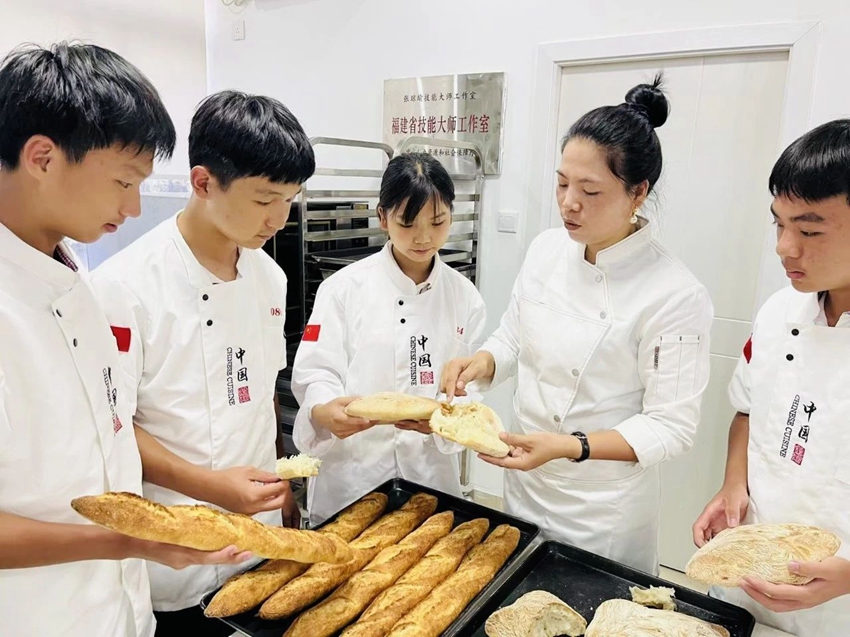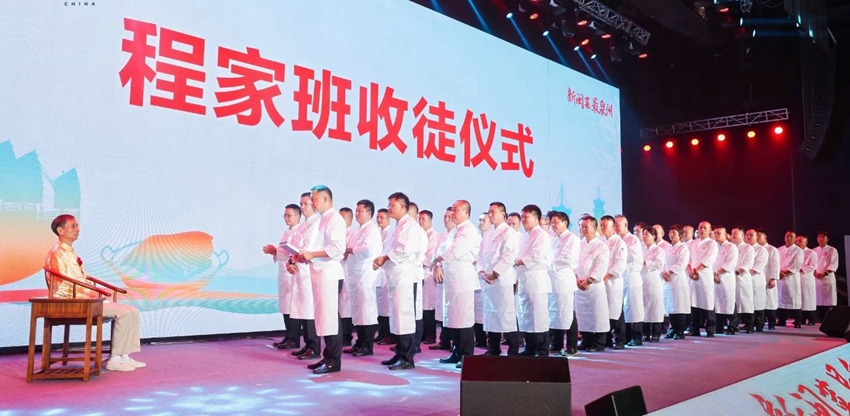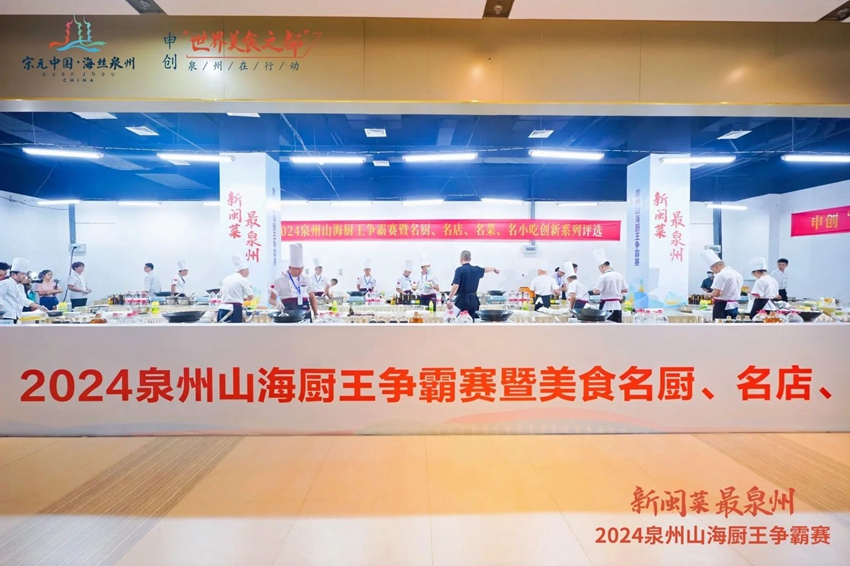- Updates
- News
To accelerate the high-quality development of its culinary sector and attract top talent to live, work, and innovate in Quanzhou, the city government has officially launched the Measures for Strengthening Culinary Talent Development in Quanzhou Cuisine (hereinafter "the Measures") on 24 December 2024. This initiative plays a central role in advancing Quanzhou's application to become a UNESCO Creative City of Gastronomy.
Key Pillars of the Measures:
1. Strengthening Professional Training
Educational pathways: Higher education institutions are encouraged to expand or introduce culinary-focused programmes, with financial support available. At least four universities are expected to launch such initiatives. By 2027, the city aims to have over 8,000 students enrolled annually in food and culinary disciplines, including more than 3,000 in culinary-specific majors.
Industry-academia collaboration: Universities will partner with leading food enterprises to establish specialised "industry colleges," backed by government subsidies, fostering deeper integration between education and practice.
Mentorship and instruction: Skilled chefs and dual-qualified educators will be invited to participate in teaching, with incentives for outstanding performance.
Cultural preservation and research: An expert panel and a dedicated research team on Quanzhou cuisine will be established to standardise recipes and codify culinary traditions.
Hands-on training: More than five hands-on training centres dedicated to Quanzhou culinary techniques will be created.
Vocational upskilling: A new culinary training hub will offer subsidised skill development programmes for industry workers.

Spotlight: Zhang Qiongyu, a celebrated culinary instructor at Hongxing Vocational School, has earned national accolades and guided students to success in provincial and national competitions.
2. Fostering Culinary Leadership
Master chef certification: Within three years, ten individuals will be recognised as "Quanzhou Cuisine Master Chefs."
Mentorship models: Initiatives such as the "Cheng Family Class" will promote traditional master-apprentice training methods.
Recognition and role models: Five professionals will be named "Quanzhou Culinary Role Models." In collaboration with culinary associations, over 1,000 individuals will receive specialised training annually.
Master studios and ICH succession: Five culinary master studios will be established, and up to 50 new intangible cultural heritage (ICH) successors in gastronomy will be officially recognised at various administrative levels.

Highlight: In September, the "Cheng Family Class" led by veteran chef Cheng Zhenfang—one of China's Registered Culinary Masters—was launched as a cornerstone of culinary heritage preservation in Quanzhou.
3. Promoting Culinary Excellence
Competitions and branding: Events such as the New Min Cuisine: Ultimate Quanzhou Chef Challenge and awards for signature chefs, dishes, and restaurants will spotlight local culinary talent.
Time-honoured brands: By 2027, the city will add 10–15 officially recognised "time-honoured" restaurants and develop distinctive food streets.
Global engagement: Quanzhou's culinary schools and restaurants will engage in partnerships with high-profile establishments, including those listed in the Michelin Guide and Black Pearl rankings.
International exchange: Local chefs will participate in culinary festivals, exhibitions, and networking events at home and abroad.

Impact: The annual Mountain-Sea Chef King competition continues to unearth emerging culinary talent from across the region.
4. Policy and Institutional Support
Talent incentives: Eligible chefs may apply for benefits under major talent development schemes such as the "Harbour Plan" and "Yongquan Action."
Institutional qualifications: Hotels and restaurants may apply to become certified entities for talent evaluation and skill accreditation.
Honours and recognition: Outstanding chefs can be nominated for national and regional honours, including the prestigious May Day Labour Medal.
Employment facilitation: A dedicated culinary employment platform will be established, complemented by at least two sector-specific job fairs annually.
Conclusion
The release of the Measures marks a major step forward in Quanzhou's efforts to systematically cultivate its culinary workforce. Relevant municipal departments—including the Organisation Department, Education Bureau, Human Resources Bureau, Bureau of Culture and Tourism, Bureau of Commerce, and the Federation of Trade Unions—will refine implementation plans to ensure effective execution. Going forward, Quanzhou will remain committed to refining its policy framework and fostering a dynamic environment conducive to culinary excellence.
